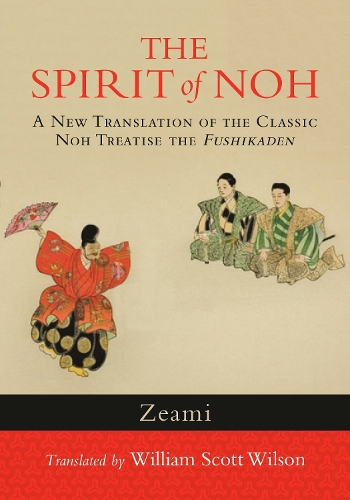
The Spirit of Noh: A New Translation of the Classic Noh Treatise the Fushikaden
(Paperback)
Publishing Details
The Spirit of Noh: A New Translation of the Classic Noh Treatise the Fushikaden
By (Author) Zeami
Translated by William Scott Wilson
Shambhala Publications Inc
Shambhala Publications Inc
15th May 2013
31st May 2013
United States
Classifications
General
Non Fiction
792.0952
Physical Properties
Paperback
192
Width 135mm, Height 191mm, Spine 13mm
204g
Description
The Japanese dramatic art of Noh has a rich six-hundred-year history and has had a huge influence on Japanese culture and such Western artists as Ezra Pound and William Butler Yeats. The actor and playwright Zeami (1363-1443) is the most celebrated figure in the history of Noh, with his numerous outstanding plays and his treatises outlining his theories on the art. These treatises were originally secret teachings that were later coveted by the highest ranks of the samurai class and first became available to the general public only in the twentieth century. William Scott Wilson, acclaimed translator of samurai and Asian classics, has translated the Fushikaden, the best known of these treatises, which provides practical instruction for actors, gives valuable teachings on the aesthetics and spiritual culture of Japan, and offers a philosophical outlook on life. Along with the Fushikaden, Wilson includes a comprehensive introduction describing the historical background and philosophy of Noh, as well as a new translation of one of Zeami's most moving plays, Atsumori.
Author Bio
Zeami (1363-1443) is considered the most important playwright, actor, and theorist in the history of Japanese Noh theatre. Along with his father, Kan'ami, he revolutionized Noh, turning it into a nuanced art form that greatly influenced many aspects of Japanese art and culture. He was a prolific writer, and his plays make up a significant part of the Noh repertoire.
